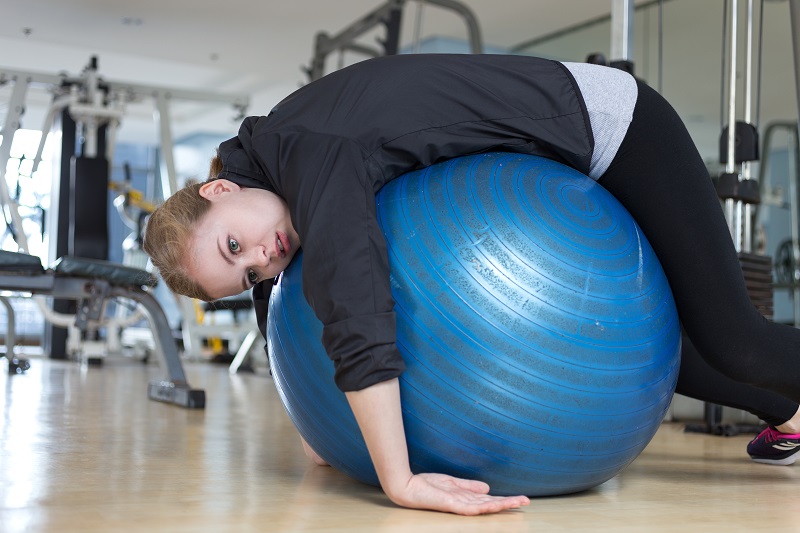Whether you’re starting out on your exercise journey or a seasoned athlete, you’re bound to have questions along the way. So here are answers to some of the most common questions about exercise. If you have a question of your own, place it in the comments. I’ll either answer it right away or make it into an upcoming blog post.
Do I need to workout everyday?
The guidelines recommend getting at least 150-300 minutes of moderate or 75-150 minutes of vigorous activity per week (or a combination of the two), plus twice weekly strength training sessions. These guidelines are designed to provide optimal health benefits. They roughly translate into brisk walking for >30 minutes per day, or running >15 minutes, five days a week.
From a health perspective, it may matter more about how much you do rather than how often you do it. Getting in all of one’s activity in one or two days (weekend warriors) was as effective as more frequent exercise at preventing disease and early death. To improve strength, though, you may need to do at least two sessions per week.

How long should my exercise be?
How long you exercise can be entirely up to you. Any amount of exercise you do is better than none. And it’s clear that even small amounts of exercise are beneficial. You don’t even have to do your session all at once. Improvements in fitness and risk factors, such as reducing blood pressure and blood glucose, tend to be similar whether you exercise all at once, or spread it out throughout the day.
This can give you quite a lot of flexibility in how you work your exercise into your day. You can do your 30 minute (or more) session all at once. Or spread it out in exercise snacks at different points in your day. And if you’re stretched for time, still try to get some exercise in instead of skipping it all together. Not only is some exercise better than none, but it helps you keep up your routine.
What’s the best time to exercise?
Exercising in the morning tends to be the most popular time. This is probably because most people prefer to get it done before the business of the day begins. And as exercise can improve mood and brain function, it makes for a great start to the day. Morning exercise may also help you fall asleep faster later that night.
Exercising in the afternoon and evening has the benefit of your body being warmer, which may result in greater muscle strength and performance. But be mindful of exercising close to your bedtime as exercise suppresses the sleep hormone melatonin, which may make it harder to sleep. This may be more of a concern if exercising at a high intensity. Despite different advantages of exercising at different times, the best time to exercise for you is when you’re able to do it.

Which exercise burns the most calories?
Many people turn to exercise for weight loss recognizing that any activity you do burns calories. While that is true, exercise may not burn as many calories as you think. That being said, exercise, and physical activity throughout the day, are crucial components of a weight loss program.
How many calories you burn while exercising depends on a number of things. First, the type of exercise matters. Repetitive motion exercises such as running, cycling and aerobics (often referred to as cardio) tends to burn more calories than strength training. Intensity also makes a difference. Regardless of the type of exercise, the more intense you do it, the more calories you’ll burn in an hour.
How much you weigh is also a factor. Particularly when doing exercise that requires you to move your body against gravity such as walking, running and aerobics (weight-bearing exercises). If you want to get an estimate of the calories used for different exercises, check out this calorie calculator.
Should I do cardio or weights?
An age-old question as to which one to do. Cardio exercise is continuous rhythmic activity such as running, cycling, aerobics and swimming. These types of exercises are considered to focus on your cardiorespiratory fitness (heart and lungs). Weight, or resistance exercises, are purposeful activities against a force, such as an external weight or your own body weight (such as push-ups). These exercises focus on improving strength.
While often viewed as different, there is no clear line between when resistance exercises stop, and cardio begins. Even the person running is building strength in muscles and resistance exercise can improve fitness.
But these types of exercise shouldn’t be thought of as doing only one over the other. Being able to lift 200 lbs over your head but getting out of breath going up a few flights of stairs isn’t ideal. Likewise with running a fast 5 km but not able to carry groceries. That’s why the guidelines for physical activity recommend everyone do both. How much time you spend on each can depend on what you enjoy doing and your own fitness goals.

How do I stay motivated?
Beginning your exercise program is exciting. You’ve made a commitment to yourself to feel good and improve your health. But after some time that excitement may wear off. You may still be committed but the same level of excitement isn’t there. That’s okay and totally normal. Motivation ebbs and flows, and that’s when planning and discipline can help you out.
Focus on establishing a routine. Make sure you have a goal for what you want out of your exercise and make a plan on how to achieve it. This will bring some challenge and build a routine. Once you’ve met your goal, set another one. Having a goal and plan will help you when motivation falters. On those times, you’ll need rely on discipline to get you out the door. Reflect on your goal and remind yourself of the benefits of exercise. And even if you aren’t motivated to do your full exercise routine, doing some is better than none and it keeps up your routine.
How long does it take to see results?
In a world of instant gratification, it may take time to see results from your exercise program. But this depends on two three things. First, what results are you looking for? Improving fitness? Improving strength? Improving health? Or something else?
Second, what is your starting point? Someone with a low fitness level will see improvements much faster than an elite athlete. The greater the difference between your current fitness level and your goal, the longer it will take. Regardless of your goal, the key to improving will be to more than you’re doing now. Or at least doing it differently.
Third, how much time do you want to put into your program? Walking three times per week will get you walking faster and further in much less time than doing it once per week. Looking at standard running programs can provide some guidance. For example, completing a 5 km (run/walk) will take about six weeks with running three times per week. For a 10 km, common beginner programs are 13 weeks long. And for a marathon, six months is a good estimate.
However, fitness levels will improve noticeably in a much shorter time. Sedentary women who did sprint intervals twice per week for four weeks saw their fitness improve and were able to exercise longer and go faster. If your goal is to just have fun, the effects on improving mood, reducing stress and increasing happiness are almost instant.

What is the best exercise to do?
The short answer is there isn’t one. There is no single exercise that will provide the best improvements in fitness, strength, mental wellbeing and health. And do so in everyone. Walking is likely the most popular form of exercise. However, there may be a ‘best exercise’ for you. This will depend on what your goals are (strength, fitness, fun, competition, etc.) and which exercise (or two or three) you enjoy doing. Because the best exercise for you, is the one you’ll do.
If you like this post, don’t forget to subscribe to my blog by clicking the FOLLOW button at the top of the right panel.
Enjoy listening to podcasts? Check out my show How to Health. A podcast about you and your health.


Leave a Reply